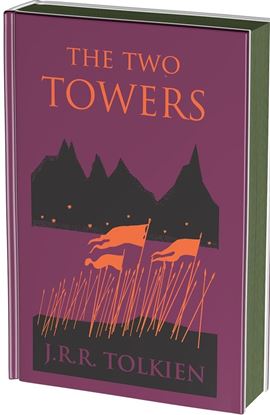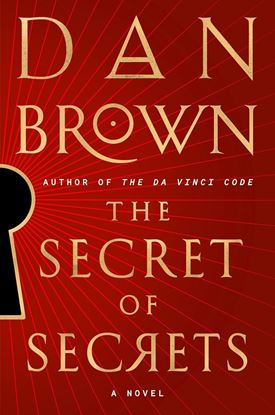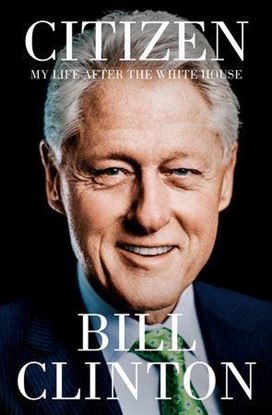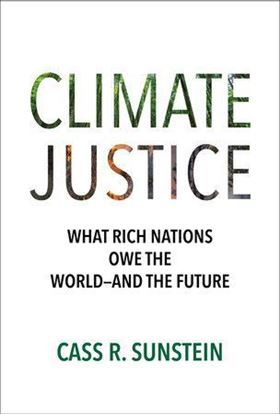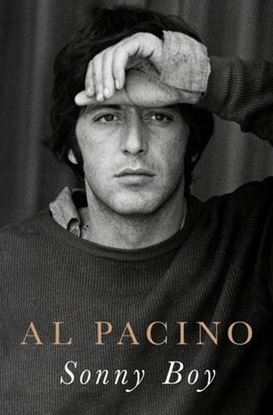

THE BURNING GOD (3) (HC)
Frodo and the Companions of the Ring have been beset by danger during their quest to prevent the Ruling Ring from falling into the hands of the Dark Lord by destroying it in the Cracks of Doom.
Now they continue their journey alone down the great River Anduin—alone, that is, save for the mysterious creeping figure that follows wherever they go.
This elegant hardcover—now available for the first time in the United States—is one of five Collector’s Editions of Tolkien’s most beloved works, and an essential piece of any Tolkien reader’s library.
1,995
THE SECRET OF SECRETS (HC)
Robert Langdon, esteemed professor of symbology, travels to Prague to attend a groundbreaking lecture by Katherine Solomon—a prominent noetic scientist with whom he has recently begun a relationship. Katherine is on the verge of publishing an explosive book that contains startling discoveries about the nature of human consciousness and threatens to disrupt centuries of established belief. But a brutal murder catapults the trip into chaos, and Katherine suddenly disappears along with her manuscript. Langdon finds himself targeted by a powerful organization and hunted by a chilling assailant sprung from Prague’s most ancient mythology. As the plot expands into London and New York, Langdon desperately searches for Katherine . . . and for answers. In a thrilling race through the dual worlds of futuristic science and mystical lore, he uncovers a shocking truth about a secret project that will forever change the way we think about the human mind.
1,995
CITIZEN
On January 20, 2001, after nearly thirty years in politics—eight of them as president of the United States—Bill Clinton was suddenly a private citizen. Only fifty-four years old, full of energy and ideas, he wanted to make meaningful use of his skills, his relationships with world leaders, and all he’d learned in a lifetime of politics, but how? Just days after leaving the White House, the call came to aid victims of a devastating earthquake in India, and Clinton hit the ground running. Over the next two decades, he would create an enduring legacy of public service and advocacy work, from Indonesia to Louisiana, Northern Ireland to South Africa, and in the process reimagine philanthropy and redefine the impact a former president could have on the world.
1,995
CLIMATE JUSTICE
If you're injuring someone, you should stop—and pay for the damage you've caused. Why, this book asks, does this simple proposition, generally accepted, not apply to climate change? In Climate Justice, a bracing challenge to status-quo thinking on the ethics of climate change, renowned author and legal scholar Cass Sunstein clearly frames what’s at stake and lays out the moral imperative: When it comes to climate change, everyone must be counted equally, regardless of when they live or where they live—which means that wealthy nations, which have disproportionately benefited from greenhouse gas emissions, are obliged to help future generations and people in poor nations that are particularly vulnerable.
1,995
POWER METAL
An Australian millionaire’s plan to mine the ocean floor. Nigerian garbage pickers risking their lives to salvage e-waste. A Bill Gates-backed entrepreneur harnessing AI to find metals in the Arctic.
These people and millions more are part of the intensifying competition to find and extract the minerals essential for two crucial technologies: the internet and renewable energy. In Power Metal, Vince Beiser explores the Achilles’ heel of “green power” and digital technology – that manufacturing computers, cell phones, electric cars, and other technologies demand skyrocketing amounts of lithium, copper, cobalt, and other materials. Around the world, businesses and governments are scrambling for new places and new ways to get those metals, at enormous cost to people and the planet.
Beiser crisscrossed the world to talk to the people involved and report on the damage this race is inflicting, the ways it could get worse, and how we can minimize the damage. Power Metal is a compelling glimpse into this disturbing yet potentially promising new world.
1,995
SONNY BOY
To the wider world, Al Pacino exploded onto the scene like a supernova. He landed his first leading role, in The Panic in Needle Park, in 1971, and by 1975, he had starred in four movies—The Godfather and The Godfather Part II, Serpico, and Dog Day Afternoon—that were not just successes but landmarks in the history of film. Those performances became legendary and changed his life forever. Not since Marlon Brando and James Dean in the late 1950s had an actor landed in the culture with such force.
1,995

